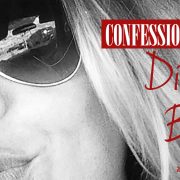Our Dangerous Fixation With Genres
 The writing world is full of factions.
The writing world is full of factions.
Each of these factions, have their own heroes (or leaders), their own book clubs, their own book dealers, their own sites, their own rules, their own readers, etc.
Sometimes I like to imagine them as armies, each with their own distinct style and strengths and weaponry.
- The romance army is nothing more than a collection of men with long flowing hair and amazing abs. There is a good chance that their swords might be a phallic thing though, consider yourself warned.
- The paranormal army is made up of brooding men who may be vampires… or werewolves… or zombies… or ghosts. Whatever the case, they are dreamy.
- In the YA ranks you will find confused teenagers with an overwhelming sense of destiny. They will be looking for something and once they find it, watch out.
- Yes, the scifi army is full of little green men, but over the course of the battle we will all learn something about humanity back here at home.
- And you do not want to see the horror army. Seriously, just turn and run!
The funny thing is that it is more than the publishers and bookstores that have latched on to the use of factions or, more accurately, genres to organize our art. We writers do it as well as so many of us proudly declare which army we fit into. Our people.
Twitter is full of writers that introduce themselves first by name and then by their genre. And the funny thing is when you search through their followers as well as those that they follow, they are also of the same genre. Their army, their rules…
Join us.
*
While creativity is generated from the side of the brain not including logic, logic still likes jump in to define the work of that other half. It is an old practice honestly. Heck, even the first folio by Shakespeare has his plays organized by “comedies,” “histories,” and “tragedies.”
And while most libraries just rely on the last name and then title to organize a fiction work into its rightful place, you will still find some separation with turnstiles just for certain genres and their paperbacks. Of course, it is bookstores that are the worse. We all know that.
I wish I could point a finger and say where this fault truly lies for how this became so prevalent today, but it grew organically and each of us in a way played a part. From academia where classes focus on one style of writing or books to publishers to now even writers that see themselves in only one camp.
So why does this bother me so much? And why do I think others need to stop and think about this as well?
*
Creativity. Inspiration.
The great moments and works in literature all were outside the grain of that period. An author was taking a risk, and in some cases it inspired movements.
Literature is filled with moments like this. From James Joyce and his Ulysses to Jack Kerouac and On the Road, all readers can list the great works that changed the artform we love so much, spurred us forward.
But if so many of us feel at home in a specific genre could those groundbreaking kinds of novels still even emerge today? Is it even possible in today’s atmosphere where the major publishing houses are run more as businesses with expectations governing the choice of a publication over the artistic importance of a work?
Are our new Joyces and Kerouacs simply self-publishing or trying to fit a mold that someone else wants? This idea should terrify all of us, no matter which army we are in.
*
 A few years ago I was busy looking for a publisher for my novel, A JANE AUSTEN DAYDREAM (out now, more info here). In the search, I wandered onto a site for a romance publisher.
A few years ago I was busy looking for a publisher for my novel, A JANE AUSTEN DAYDREAM (out now, more info here). In the search, I wandered onto a site for a romance publisher.
Yes, there is love in DAYDREAM, but I would never call it a romance; yet, it couldn’t hurt to visit the site. Sometimes publisher have an interest in publishing something new outside their realm, right? A nice thought but there was a rude awakening waiting for me in their submission page.
The submission page had the basics (how many pages of excerpt, synopsis, etc.), but it didn’t stop there. Oh no, not at all! They broke down in detail characters, plot, and every aspect of how they want a book structured.
Wow.
I like to think of that practice as the equivalent of throwing a painter a canvas with paint-by-numbers already on it. “Just fill it in, we’ll hang it up later, Picasso!”
I wish I could say this publisher was the only one like that, but that wouldn’t be true. It inspired an investigation by me and I found similar detailed requests in other genres as well.
Of course, a publisher has every right to decide what they want, but what made me a little bothered is the idea of how many new writers there are out there that have changed their books to meet these requirements. Because those new writers know, like we all do, that this market is so overly-congested with writers that if they didn’t do it, another writer would step in and do it.
Yet… this practice makes me wonder how many readers are really that happy with “cookie cutter” genre books? I mean, they have to feel like things sound “like the same old song” from book to book? They can’t be blind to it, right?
Which brings me to another important question. By having genres and following rules of them so specifically, are all of us (writers, editors, publishers, and even readers) damaging the very art-form we claim to love? Maybe even the genres themselves, since we are stifling their own possible growth?
*
 Last Christmas I wanted to give my nephew a copy of Dandelion Wine by Ray Bradbury. To say this book is important to me is to make a gross understatement. This is one of the books that inspired me to even chase this dream as a writer.
Last Christmas I wanted to give my nephew a copy of Dandelion Wine by Ray Bradbury. To say this book is important to me is to make a gross understatement. This is one of the books that inspired me to even chase this dream as a writer.
The book is filled with literary magic. (No, I don’t mean fantasy magic! Jeepers!)
The problem is in my local big-chain bookstore I had a problem even finding it in the store! After visiting a few different sections, I finally found it in scifi with a cover that seemed out of a dream as compared to anything in the book. It was odd; yes, “odd” is the right word to use.
But where would a book like Dandelion Wine belong? YA? Spiritual? Thriller? SciFi? Fantasy? Historical Fiction? Literary Fiction? I could make an argument for any of those genres, but one genre alone doesn’t feel solely right for Ray’s masterpiece.
Which brings me to my greatest fear of all. As the sides in this genre war continue to take root, with their armies turning each of their areas of occupation into more and more a police state (“You are with us, or you are with them!”), will classics like this be lost.
A casualty of war?
***
Scott D. Southard is the author of four novels published in the last few years, A Jane Austen Daydream, Maximilian Standforth and the Case of the Dangerous Dare, My Problem With Doors and Megan. You can find them via his Amazon author page or on Google eBooks. He is also an editor with rebeccatdickson.com. Got a manuscript that needs a special touch? Contact us and ask for Scott.





Wow, that’s a great examination of where publishing is at these days. Everyone complains books and movies are re-hashing stuff that’s been done, but we’re encouraging it by making it far easier to succeed by not being unique. By staying nicely within the dotted lines, by writing the story the way a publishing company’s PR person thinks they can hook the market.
Going too far down that path leads books the way of music, engineering pop stars through reality TV etc. for content that’s meant to be bought, enjoyed for 5 minutes, and forgotten about.
I’ll have to check Dandelion Wine out.
Recently, I brought one Romance Novel and it seriously sucked. No depth or time for emotional connection. At one time it was one of my favorite genres to read, not so much anymore. They want everything to be formula and no matter what happens, the hero always ends up with the heroine no room for the element of surprise.
One of my favorite book recently is Jodi Picolut’s the Storyteller you had no idea how the ending but in the end you were moved by the time you closed the book. That is the important factor of a book.
Even though they are two completely different novels, the reader should be captivated and in the end cheering for the characters. That is the one element lacking in certain genres especially romance.
My understanding is that Romance novels were ALWAYS written this way, (perhaps the reason so many Romance writers use a psuedonym?).
But the idea that ALL “works of art” are expected to follow this pattern makes me irate, esp. knowing that I am one of those writers who is exploring new territory. What a damn shame!
I plan on reinventing Romance novels and make them less predictable.
Triberr appears to have eaten half my comment so trying again.
I like genres. I read mostly high fantasy, but occasionally venture outside my genre. If I randomly picked up abook, not knowing what genre it was, odds are it wouldn’t be what I wanted to read. When I read outside high fantasy, it’s by deliberate choice, and not random. I have to be in the mood. Genres create expectations that allow a reader to gauge, roughly, how likely they are to like a book.
I don’t think genres stifle creativity. Sure, some writers will pander, but there will always be those who write what they want to write regardless. There are new genres. there are genre mash-ups. And with self-publication, no writer needs to kow-tow to publisher expectations. I am currently reading a sci-fi/fantasy mash-up. It’s new, it’s unexpected, but I still found it because of the spec fic label.
To me, not having genres is like packaging sauce generically. I want sauce with my meal, but I have to pick a bottle and hope it’s what I want. Labelling them doesn’t stop anyone inventing new sauces, it just helps me to eat an enjoyable dinner.
My name is Alma Alexander and I write “genre”. But I write *something different every time*. I’ve written YA fantasy, high(epic) fantasy, historical fantasy, something that the baffled critics have labelled “contemporary” fantasy, dark-fantasy-borderline-horror fantasy, something that yet other baffled critics have dubbed “feminist fantasy” (yeah, you know, it had GIRLS DOING THINGS in it. Proactive female protagonists. It’s gotta be a faminist thang, don’tcha know…) People don’t know where to shelve me. My historical fantasy was shelved and marketed as a “straight” historical and often shelved in that section which meant that the “straight” historical readers who tripped over the overlay of fantasy in the work hated it because it was “historically inaccurate” (although it never claimed to want to be such and in fact has a specific disclaimer in the author’s note for those who bothered to read it) and the fantasy readers who might have loved it never found it and never read it (because not that many of them might mosey on down the historical aisle, or for whatever other reasons…) so yeah. I don’t much like “genre”. All too often it’s used as a crutch and a commercial construct…
Jeeeez! I can’t believe publishers don’t get what art is. I guess you can’t have your eyes on money and creating something unique at the same time. I hate the idea of following a formula! What’s the point of creativity if all we did was follow a template and fill in our story? That’s garbage!
You can’t have an art factory-Seth Godin.
Genres are okay but the talent shouldn’t be controlled.
Hi everyone,
I enjoyed reading all of your responses to my post!
The one thing to remember is, of course, everyone has different opinions and likes. As much as we like we can’t define art and people’s interest with logic, it’s just the other side of the brain from creativity. Genres, in my opinion, is logic trying to step in. For some readers (and writers) they like having their interests pinpointed so accurately, for others it is limiting. I am on the “limited” end of the scale, as you know from my post.
So my big advice to writers is always to write for yourself first. If you enjoy your own writing (and you are happy), everything else (publishing, sales, etc.) is a nice bonus.
Cheers!
-Scott